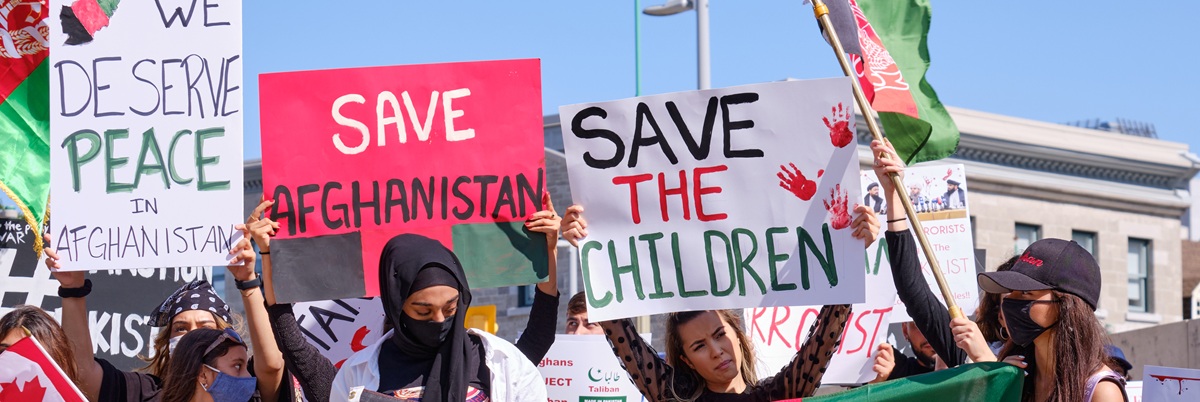Diplomacy
The Taliban’s long game out of isolation

Image Source : Shutterstock
Subscribe to our weekly newsletters for free
If you want to subscribe to World & New World Newsletter, please enter
your e-mail
Diplomacy

Image Source : Shutterstock
First Published in: Mar.07,2025
Mar.31, 2025
In Brief
Despite its increasingly repressive domestic rule, more countries than ever are engaging with Afghanistan’s Taliban rulers. India’s first official meeting with the Taliban in January 2025 encapsulates a broader global trend of once-reluctant countries now engaging with the Taliban. Credible terrorism concerns, worsening humanitarian conditions and geopolitical rivalries are pushing governments toward quasi-acceptance and recognition of Taliban rule.
When the Taliban took over Afghanistan in 2021, the prevailing sentiment was that the regime would be an international pariah if it did not moderate its hardline positions. The Taliban’s violent past also made it inconceivable for some states to engage with it as the government of Afghanistan.
Despite the Taliban’s repressive rule worsening considerably since it seized control in 2021, with restrictions on women taken to a new extreme and the reintroduction of brutal punishments for alleged moral crimes, the regime is overcoming its international isolation. More governments are prepared to look past the ethical dilemma of dealing with the Taliban and quasi-recognise it as the government of Afghanistan.
India stepped up its outreach to the Taliban in January 2025, with India’s Foreign Secretary Vikram Misri and Afghanistan’s acting Foreign Minister Amir Khan Muttaqi holding their first meeting. This is the highest level meeting between the two sides since India began small and indirect engagements with the Taliban after its return to power in 2021. For the Taliban, its meeting with India’s foreign secretary is a major diplomatic breakthrough given its tense and fractious relations with India since the 1990s.
After this January 2025 meeting, the Taliban referred to India as a ‘significant regional and economic partner’. The sea change in relations likely stems from New Delhi not sensing any significant terrorist threats from the Taliban or groups allegedly linked to the Taliban.
Worsening Taliban–Pakistan relations may have played a role in India’s outreach to the Taliban. Pakistan firmly backed the Taliban when it was mounting a comeback in Afghanistan. But since the Taliban’s return, border disputes and the rise of Pakistani Taliban militancy inside Pakistan have sent their relations into a downward spiral. The souring Pakistan–Afghanistan relations suggest New Delhi’s interests may not be as affected as feared when the Taliban took over in 2021.
Despite India’s growing outreach, its relations with the Taliban are still very calibrated and limited — paling in comparison to China’s. Yet India’s outreach may be more diplomatically significant for the Taliban than China’s as it sets a precedent for Western democracies that also seek to strike a balance between not recognising the Taliban as the legitimate government, while engaging with it on necessary matters.
Western governments, particularly the United States, were unfazed by some of India’s initial engagements, but now seem to recognise the necessity of limited engagements with the Taliban. It was revealed in January 2025 that the former Joe Biden administration negotiated with the Taliban to secure the release of two US prisoners in Afghanistan. In 2024, the Biden administration debated expanding direct engagements and cooperation with the Taliban to mount more effective counterterrorist activities.
The return of US President Donald Trump is likely to change US–Taliban relations. Under Trump’s first administration, the United States pursued talks with the Taliban, culminating in the 2020 Doha Agreement that facilitated the US withdrawal from Afghanistan.
Trump’s return increases the possibility of greater US engagements with the Taliban, though it has also created uncertainties. President Trump was critical of how the US departure from Afghanistan was handled under the Biden administration. In January 2025, Trump said that the Taliban needed to return US military equipment in Afghanistan as a precondition for future financial assistance. The Taliban have also said that they seek a ‘new chapter’ in their relations with the United States under the second Trump administration.
The biggest roadblock for the West engaging with the Taliban has been its repressive policies and human rights violations. But there are now compelling reasons for the West to engage with the Taliban.
Western sanctions, in addition to having no effect on the Taliban’s draconian governance, have worsened humanitarian conditions in Afghanistan. Despite the sanctions’ ineffectiveness, it is unclear whether the West would go as far as to lift the sanctions. Instead, Western countries might find ways to work with the regime on specific issues. Foremost among these issues is addressing the growing presence of terrorist groups in Afghanistan — such as Al-Qaeda, a Taliban ally, and the reviving Islamic State–Khorasan Province.
The growing Chinese influence in Afghanistan also has Western countries concerned that turning their backs on Afghanistan may work to China’s advantage. China perceives Afghanistan as a gateway for China’s Belt and Road Initiative projects in Central Asia and seeks to exploit the country’s vast and untapped natural reserves.
Though more governments are now prepared to engage with the Taliban, the Taliban’s most strategic relationship will likely remain with China. China–Taliban relations are comprehensive and long-term, spanning economic, political and security cooperation. China does not recognise the Taliban but was the first to accept a Taliban envoy. China and the Taliban have inked several notable agreements, including China granting the Taliban tariff-free trade access in October 2024, which could provide an economic boost to the cash-strapped regime.
But China’s relations with the Taliban are also not without problems. Some Afghanistan-based terrorist groups have China on their radar and pose security concerns in the sensitive Chinese border provinces. The Taliban’s affiliates have previously attacked Chinese interests in neighbouring Pakistan. Despite these concerns, Beijing appears committed to strengthening its relationship with the Taliban, focusing on mutual security, technological exchanges and investments.
Another diplomatic breakthrough for the Taliban is its improving relations with Russia. Russia invited the Taliban to the Saint Petersburg International Economic Forum, among other meetings held in Russia in 2024. Russia also decided to remove the Taliban from its list of terrorist organisations. These overtures suggest Russia is seeking closer relations with the Taliban.
The Taliban played a long waiting game, biding its time since the US invasion of Afghanistan in 2001. It ultimately prevailed by returning to power as soon as the United States withdrew 20 years later. Growing diplomatic engagements prove that the Taliban is again capable of playing a long game to wear down governments into a quasi-acceptance and recognition of its draconian rule.
First published in :

Kalicharan Veera Singam is a Senior Analyst at the International Centre for Political Violence and Terrorism Research at the S Rajaratnam School of International Studies, Nanyang Technological University in Singapore. He researches and teaches security, terrorism and extremism-related issues.
Unlock articles by signing up or logging in.
Become a member for unrestricted reading!